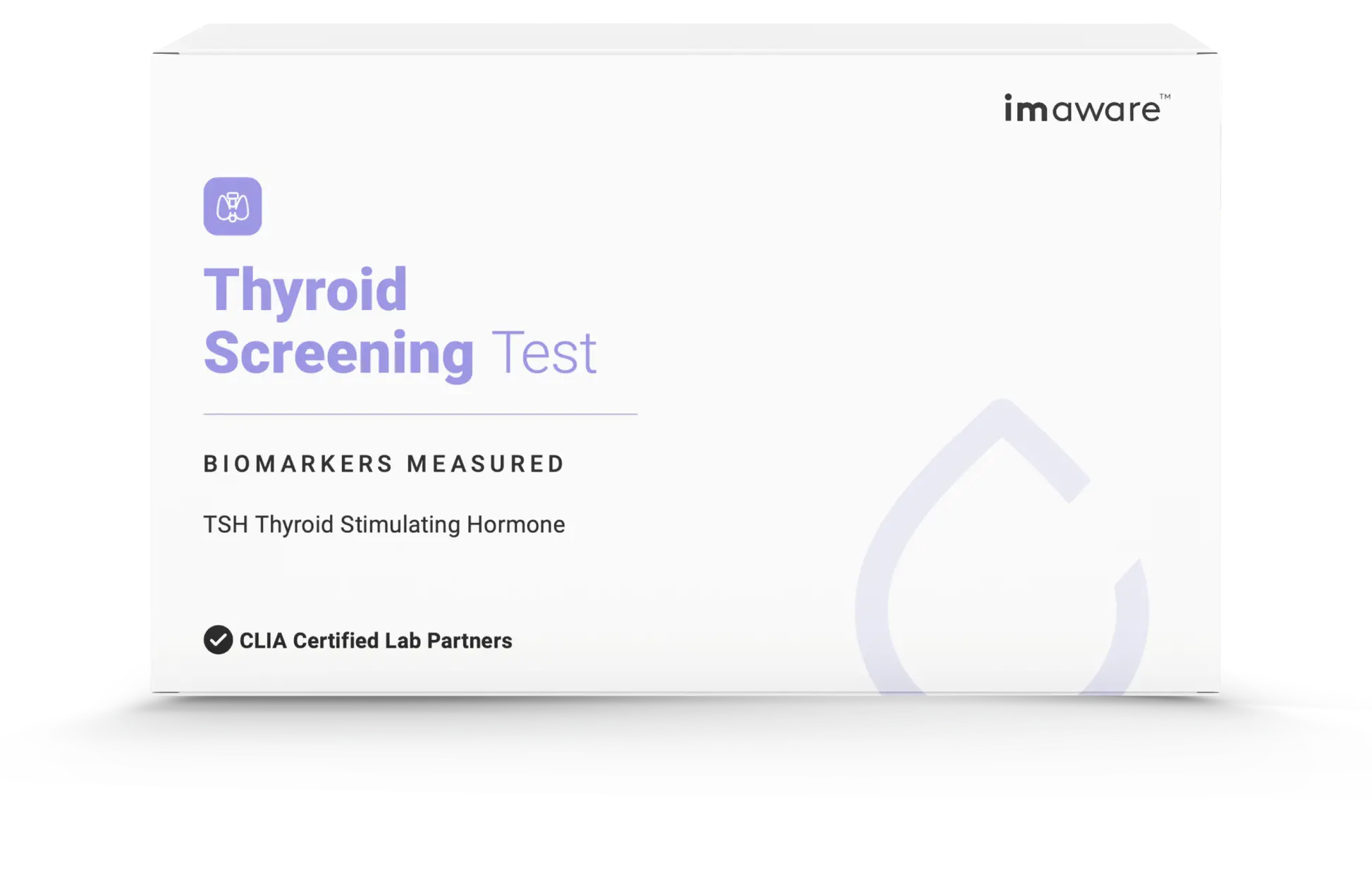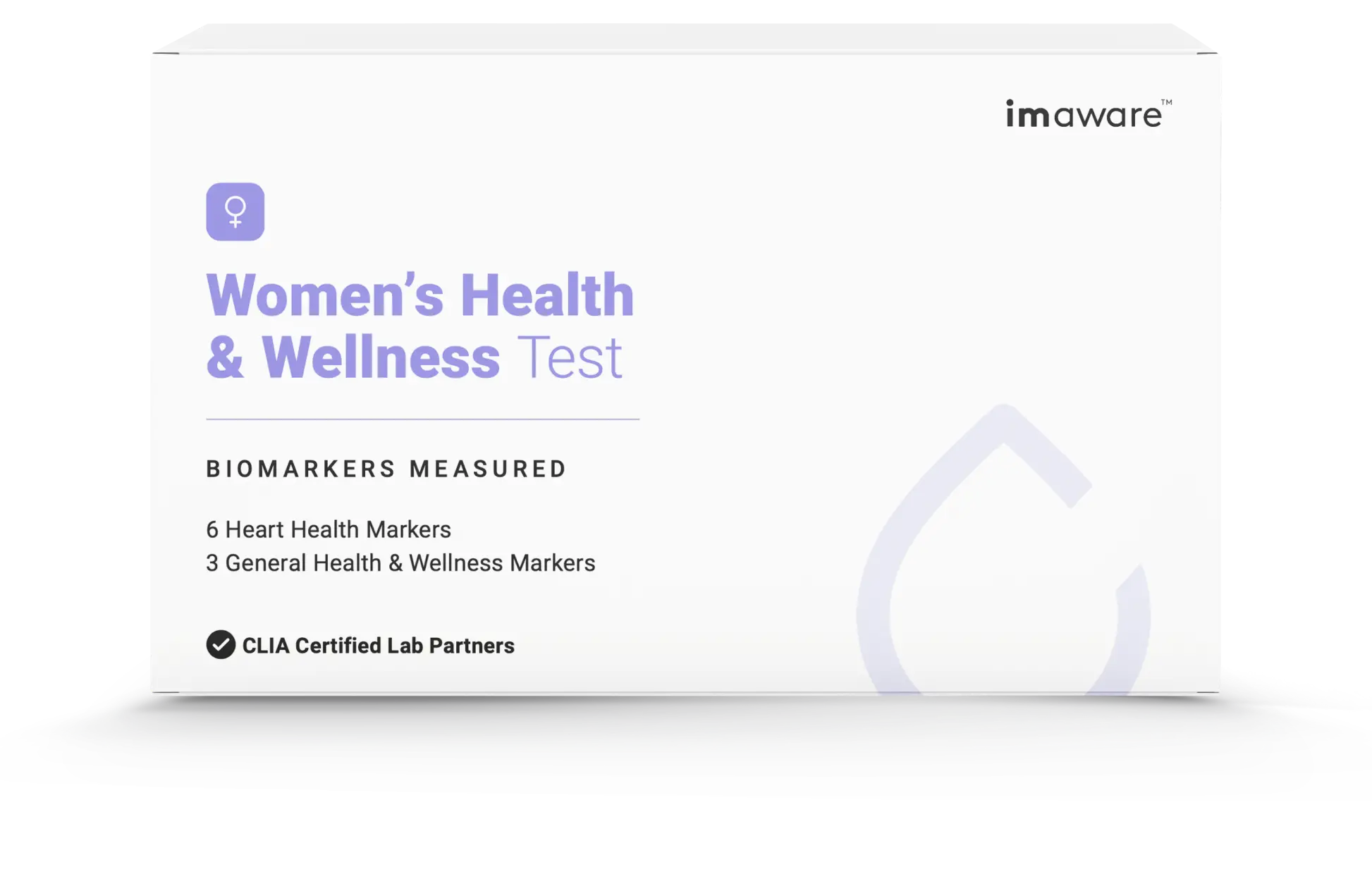What is TSH?
The thyroid is a small gland located just below the Adam’s apple that produces hormones to manage your body temperature, energy use, weight, muscle strength, and mood. Thyroid-stimulating hormone (TSH) is produced by the pituitary gland in the brain and tells the thyroid how much of these thyroid hormones to release. This means that TSH is a biomarker that can be used to evaluate thyroid health. If your pituitary gland notices that thyroid hormone levels are low, it produces TSH to signal to the thyroid to release more.
When should I test my thyroid activity?
A TSH test is used to identify problems with thyroid function and to monitor the effectiveness of treatments for hypothyroidism and hyperthyroidism.
Thyroid problems are linked to both stress and iodine deficiency. It is recommended during pregnancy since about 1 in 500 pregnant women experience hyperthyroidism¹ and both hyper- and hypothyroidism can continue after birth if a woman experienced either during pregnancy.
What are considered normal TSH levels?
The imaware medical advisory board recognizes 0.4–4.5 mU/L as the normal range for TSH in blood.
What does a low level of TSH mean?
Low levels of TSH may indicate that your thyroid is overactive and produces an excess of thyroid hormones. This is called hyperthyroidism. Hyperthyroidism can lead to anxiety, weight loss, and difficulty sleeping.
What does a high level of TSH mean?
High TSH levels may indicate an underactive thyroid, a condition known as hypothyroidism. This may cause hair loss, weight gain, and tiredness.
How can I improve my TSH levels?
Those with an underactive thyroid can address their symptoms by taking a pill daily that contains thyroid hormones. Those with hyperthyroidism have many treatment options, including anti-thyroid medications.

References
- Mestman JH. Hyperthyroidism in pregnancy. Clin Obstet Gynecol 1997;40(1):45–64.

